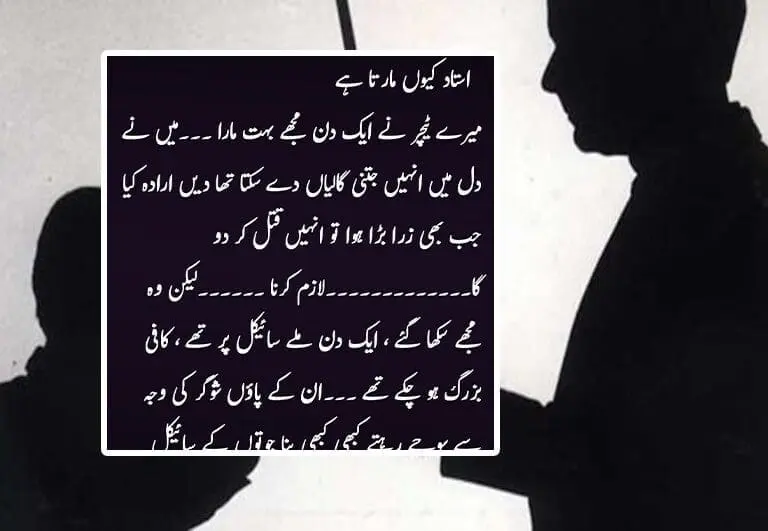In the royal halls of a grand kingdom, a young prince diligently studied under his esteemed mentor. The wise mentor imparted two crucial lessons to the prince: Do not speak falsehood. Refrain from anger. After a brief pause, the mentor asked the prince to recite the lessons. However, the prince admitted he couldn’t recall them just yet. Undeterred, the mentor gave the prince another chance the next day. Again, the prince confessed his inability to remember the lessons.
READ IN URDU BELOW

With a stern expression, the mentor declared that the following day would be a holiday, emphasizing the importance of memorizing the lessons. No excuses would be entertained. Despite the holiday, the prince struggled once more to remember the teachings. Frustration set in, and the mentor, rather than sympathizing, delivered a slap, stating that forgetting for so long was unacceptable.
Immediately after the slap, a remarkable transformation occurred. The prince, who had been struggling to recall the teachings, suddenly seemed enlightened. He confidently declared that he had remembered the lessons. Intrigued, the mentor asked what had triggered this sudden recollection. The prince explained that he had reflected on the impact of anger in his life. Until that moment, he had found it challenging to control his temper. The slap, however, had served as a wake-up call, making him realize the significance of the mentor’s second lesson.
The prince went on to share that before the slap, he had struggled with the concept of not getting angry. Now, he had truly comprehended the essence of the lesson. The mentor, impressed by the prince’s newfound understanding, acknowledged the efficacy of the lesson. The prince had not only memorized the teachings but had internalized their meaning.
This tale carries a valuable message about the significance of learning from experiences. It emphasizes that sometimes, a physical or metaphorical ‘slap’ is necessary to jolt us into recognizing our shortcomings. In the end, the prince not only embraced the teachings but also learned to apply them in his life. In our own lives, it’s essential to reflect on the lessons we encounter and ensure that we don’t merely memorize them but truly understand and implement them. After all, wisdom is not just about what we know but how we apply that knowledge.
Conclusion
The tale of the prince and his lessons underscores the transformative power of experience and the importance of learning from our mistakes. It serves as a reminder that true wisdom is not just about acquiring knowledge but about applying it in our lives.



